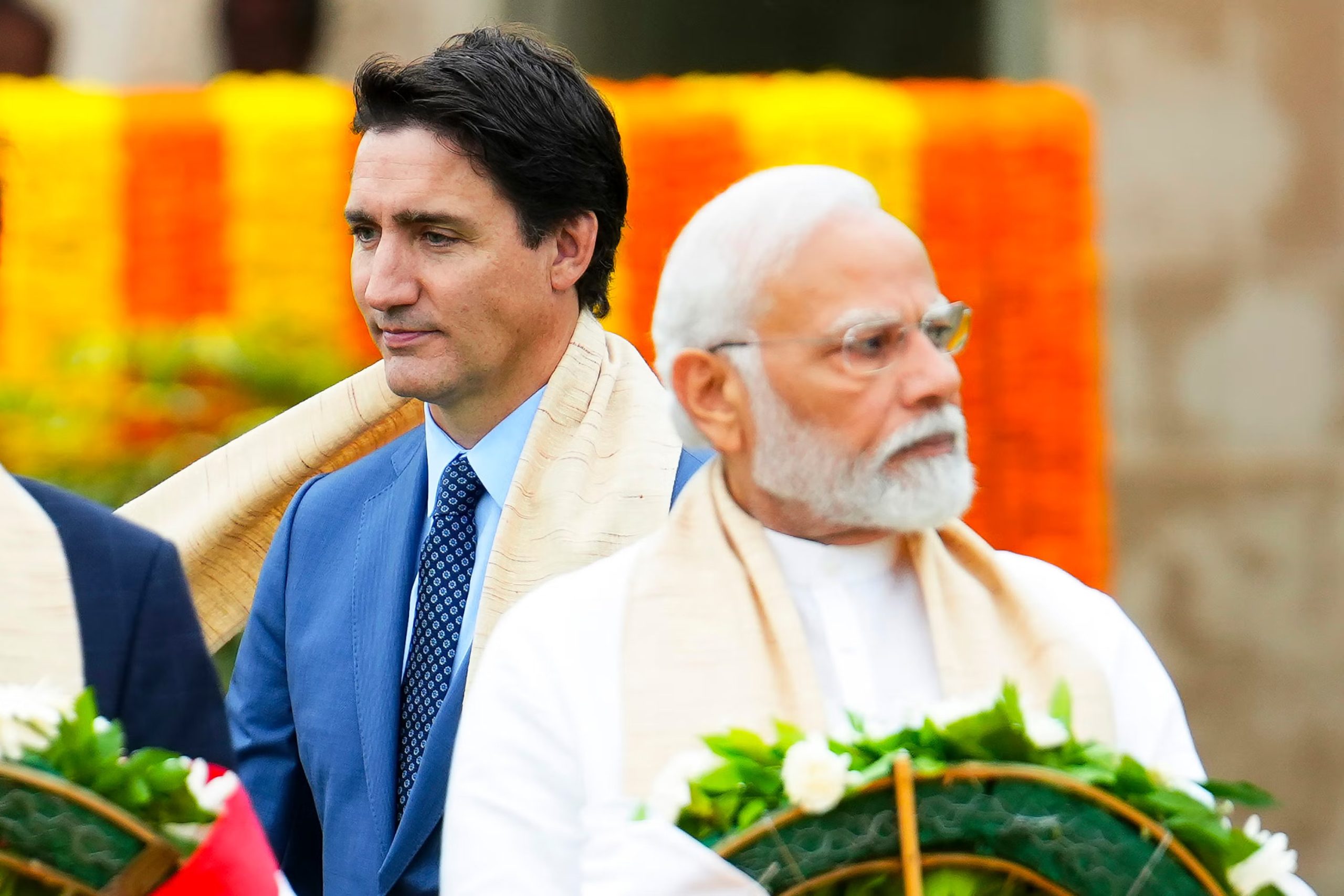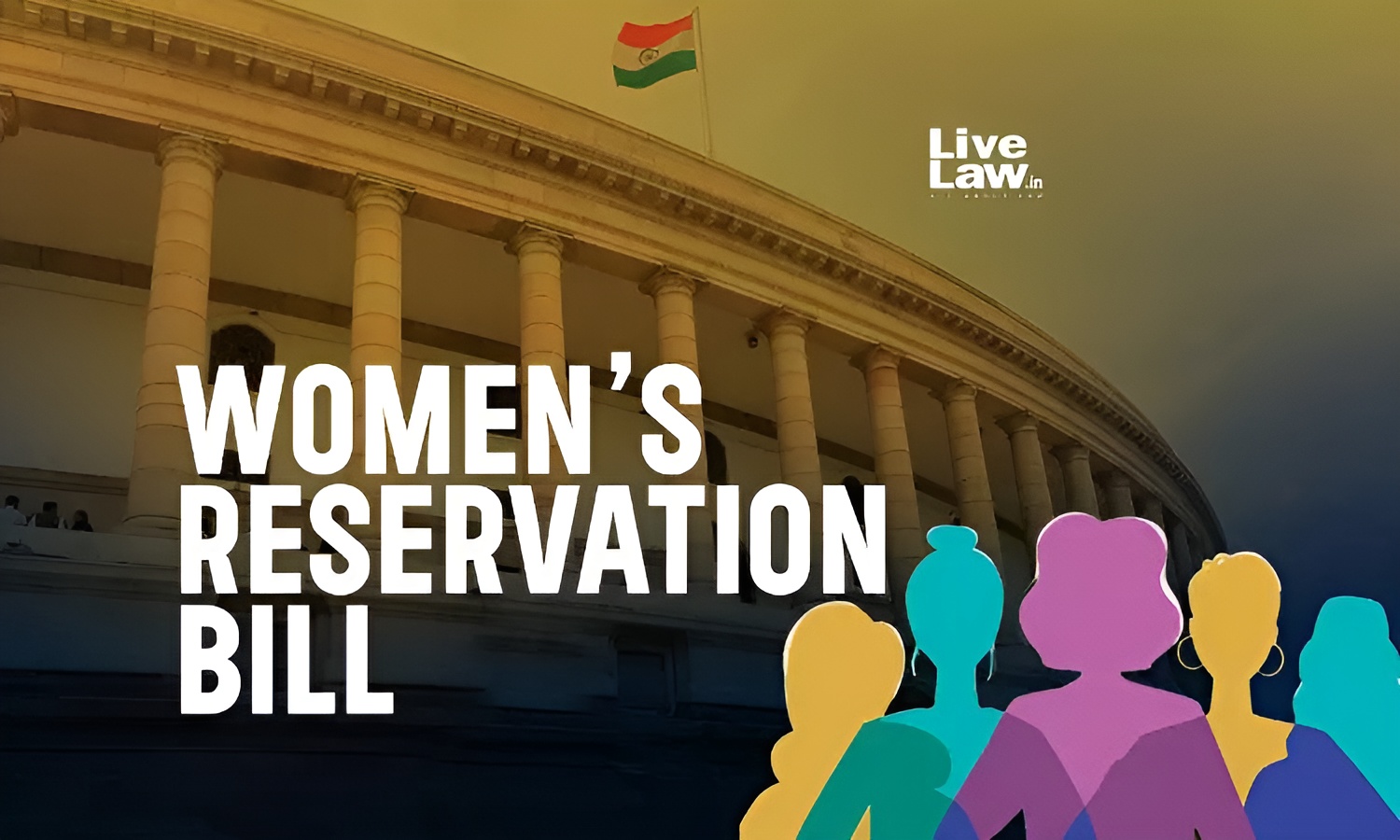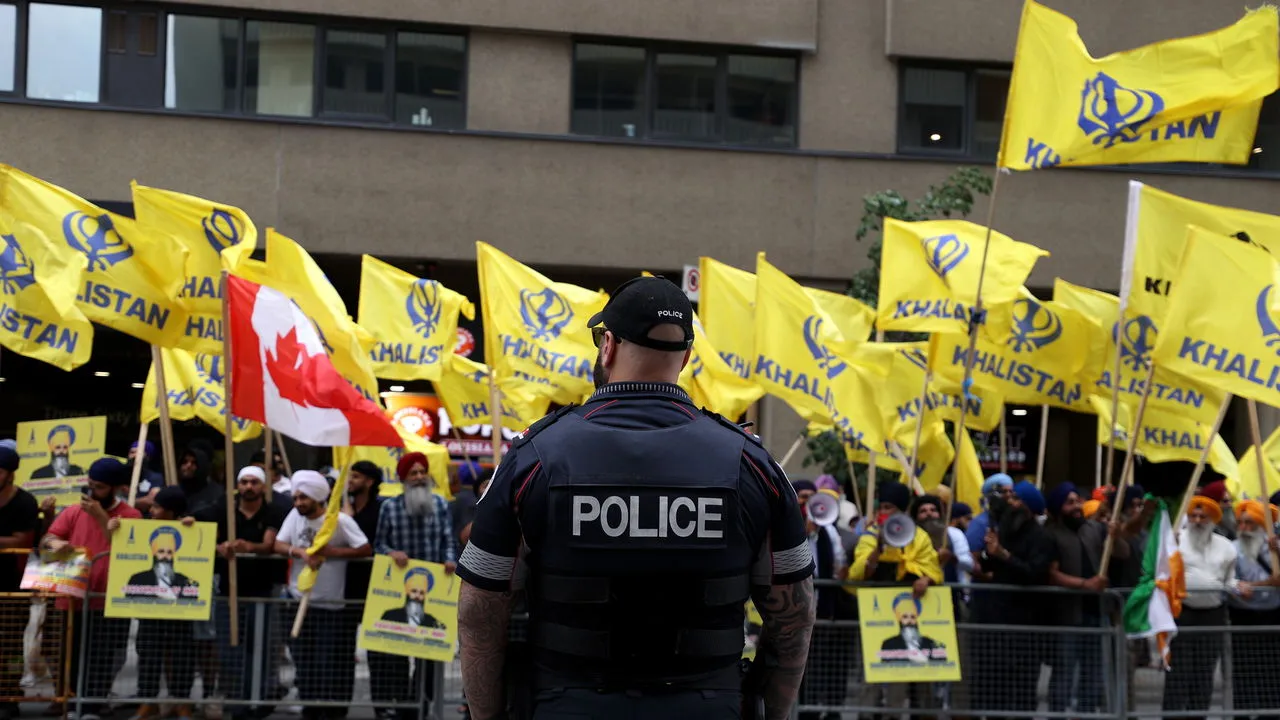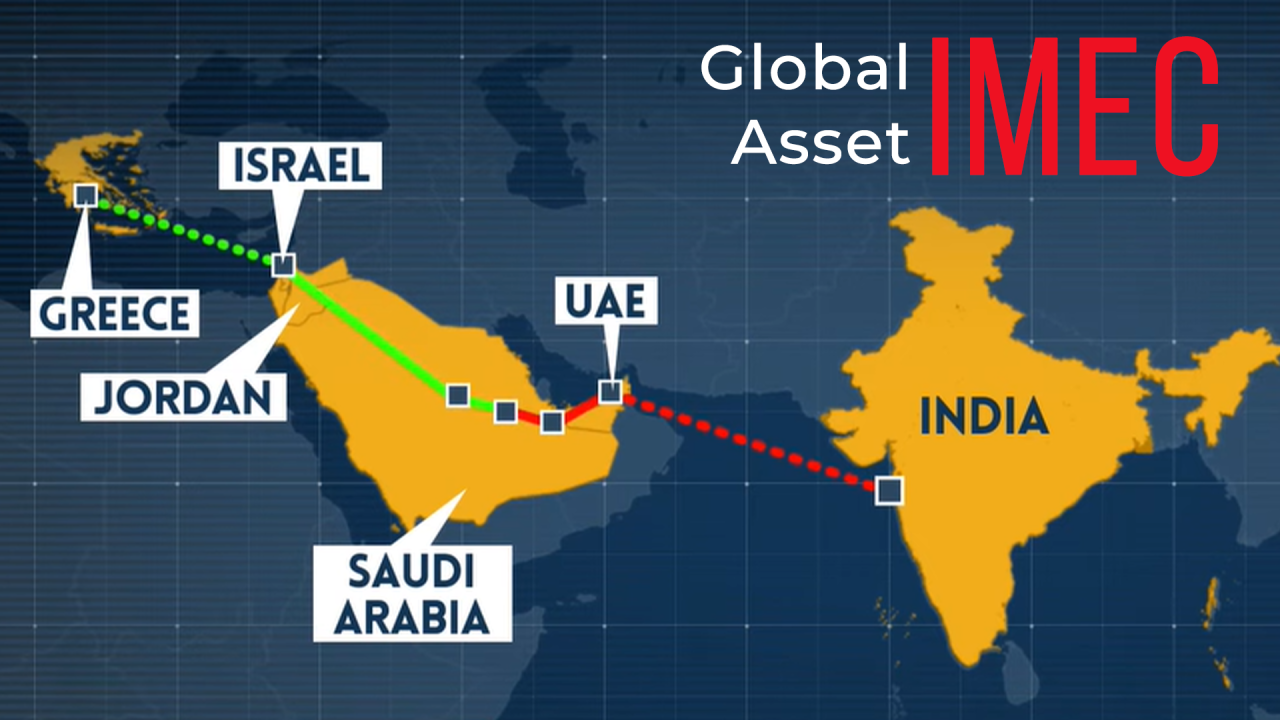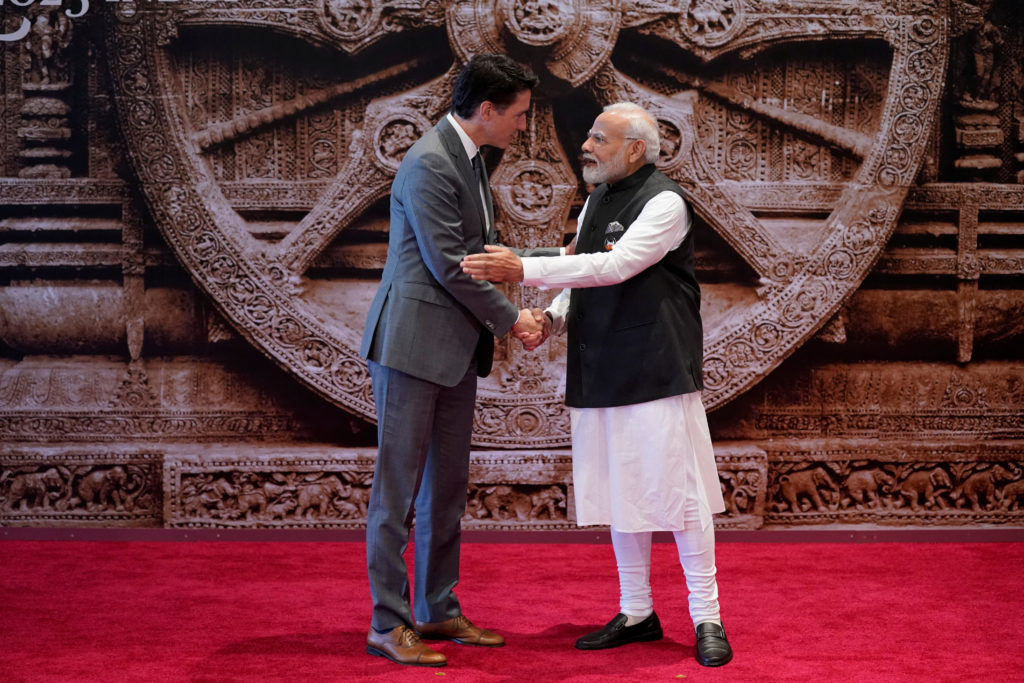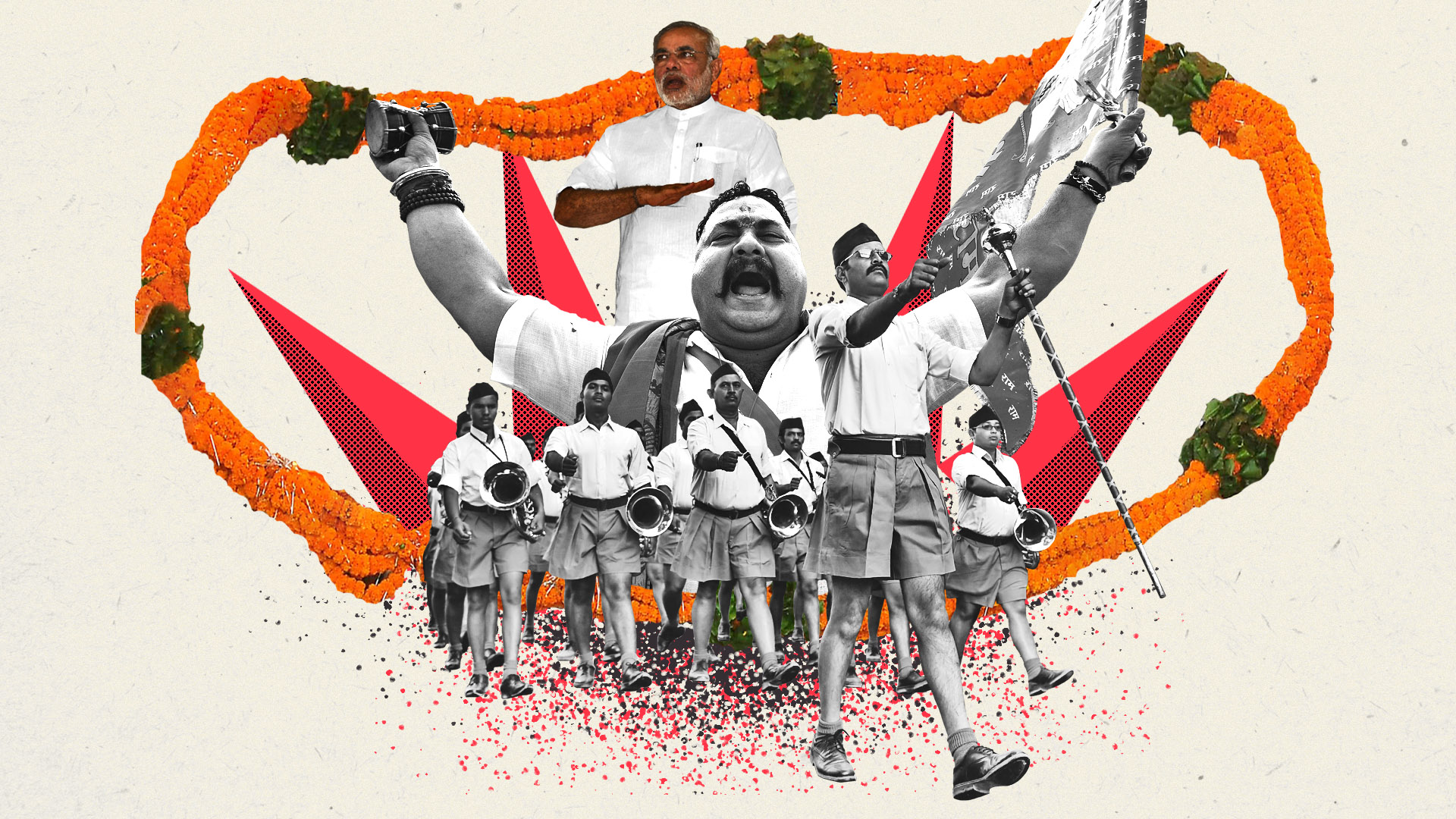The claim that India had been responsible for the June murder of a Canadian citizen on Canadian grounds was shocking. The accusation was made on Monday by the prime minister of Canada, and a full-scale diplomatic conflict quickly ensued. Canada sent messages of concern in Canberra, Australia, and Washington, D.C., urging its allies to band together to confront India. In a tit-for-tat action, India moved to remove a senior Canadian diplomat, and Indian officials lined up to complain to Canada.
However, years of diplomatic animosity lay behind the decline in relations to what officials and analysts considered the lowest point ever. Western countries, most notably Canada, are seen in New Delhi as having done nothing while radical Sikh groups, including the one led by the killed Canadian, promoted a cause that poses a threat to the Indian state.
As the diaspora mobilization for Khalistan, the independent nation that Sikh secessionists want to establish in the Punjab region, has vandalized Indian diplomatic missions and threatened Indian diplomats, Indian officials have accused their counterparts in Canada, Britain, the United States, and Australia of inaction.
However, if the presence of Indian spies is proven, it may signal a daring new direction for the country’s security services. Analysts and former security officials predicted that Hardeep Singh Nijjar’s murder would be the first such known case in a Western country, despite RAW being long suspected of involvement in targeted killings in neighboring countries.
The Indian government needs to treat this situation seriously, said Canadian Prime Minister Justin Trudeau to reporters on Tuesday in Ottawa. “It is extremely serious and has far-reaching consequences for international law and order.”
Part of India’s domestic politics has been reflected in its response. The Khalistan cause receives minimal support in Punjab, as the Indian administration has long said. Though the largest threat to Prime Minister Narendra Modi’s ten-year rule, the Sikh-dominated farmers’ movement of 2020 and 2021 was painted by ruling-party leaders with the same wide “secessionist” brush as radical Sikh elements.
Many commentators have come to the conclusion that Mr. Modi may be using Khalistan as a big threat as part of a tried-and-true political and electoral strategy in which he positions himself as the defender of India, particularly its Hindu majority.
As Hindu nationalism is supported at the highest levels of government, as has been the case with Christians, and sectarian violence has been on the rise, Muslims in India have also paid a terrible price. However, the most recent event brought attention to Sikhs.
The diplomatic row started on Monday when Mr. Trudeau declared in an urgent speech to Parliament that Canadian security services had substantial evidence linking Indian operatives to the British Columbia killing of Sikh separatist leader Mr. Nijjar. The largest Sikh population outside of India is in Canada, where the government has vowed to take decisive steps to defend its inhabitants and sovereignty.
India vehemently denied the accusation. Its Foreign Ministry denied “any attempts to connect the government of India” to Mr. Nijjar’s passing in a statement and charged Canada with harboring “extremists and terrorists” who “continue to threaten India’s sovereignty and territorial integrity.”
Former Indian ambassador K.C. Singh claimed that by withholding any information linking the attack to the Indian government, the Trudeau administration compromised the seriousness of Canada’s claim as a Group of 7 nation.
Since the murder, Sikh organizations have organized demonstrations and leveled accusations against Indian officials, putting more pressure on Canadian lawmakers, according to Mr. Singh.
“India is furious at the lengthy punishment meted out to Sikhs in Canada who want independence for the Indian Punjab. Canada is upset about a threat to its citizens and a violation of their sovereignty. The difference between the two sides has grown, according to Mr. Singh. “Domestic politics dictate obduracy in both countries.”
As Mr. Trudeau embarked on a journey to India this week for the Group of 20 summit, there were already indications of that breakdown. The first encounter was tense with Mr. Modi. Then there was Mr. Trudeau’s absence from a gala supper when President Biden and other foreign leaders were present. Top it off by accepting an Indian offer of a replacement plane when an aircraft malfunction left Mr. Trudeau detained in his New Delhi hotel for an additional two days.
Mr. Trudeau claimed on Monday that he had told Mr. Modi about the Canadian results “in no uncertain terms” when in New Delhi. The charges made against Mr. Trudeau were “completely rejected” by Mr. Modi, according to the Indian government’s report on Tuesday.
The separatist movement in Khalistan, which began in earnest before India was divided after British colonial control ended in 1947, came to a brutal head in the 1980s.
In order to advance their Khalistani cause, a gang of militants brutally seized control of the Golden Temple in 1984. Prime Minister Indira Gandhi dispatched commandos to clear them in a horrific operation that resulted in hundreds of fatalities. Following Ms. Gandhi’s actions, two Sikh bodyguards killed the prime minister as she was making her way to work in the morning.
Following massive pogroms, which were blamed on India’s ruling Congress party, thousands of innocent Sikhs died. Over 300 people were killed in a bombing on an Air India flight between Toronto and London in 1985, which was allegedly carried out by Khalistani rebels.
Sikhs in Western nations have continued to utilize the secessionist cause as a rallying cry, despite the fact that it has less support in Punjab. The retired ambassador, Mr. Singh, called the secessionist movement “a fiction in the minds of certain radical elements in the diaspora.”
Officials from India stated that they believed local political considerations were to blame for the lack of action taken against the groups’ activities in other nations. In states like California and Australia, among others, the Sikh diaspora has developed into strong agrarian lobbying groups.
The 45-year-old separatist Sikh leader, Mr. Nijjar, was sought after in India due to terrorism-related allegations. The top law enforcement agency in the nation filed a complaint against him in 2018, charging him with “conspiring and planning to carry out a major terrorist attack in India,” “sourcing finance to procure arms and ammunition,” and “training Sikh youth for carrying out terrorist activities in India.” According to reports, India had asked for his extradition.
According to the agency, he paid particular attention to rallies of the Rashtriya Swayamsevak Sangh, or R.S.S., a nationalist right-wing group that serves as the intellectual foundation of Mr. Modi’s ruling Bharatiya Janata Party.
Senior Punjabi party leader Vineet Joshi claimed that Mr. Nijjar, who had immigrated to Canada in the 1990s, was not well-known there and that Khalistan was not a major concern. However, he added that Canadian authorities must recognize the distinction between free expression and “talking about the disintegration of another nation.”
Mr. Joshi remarked, “They need to comprehend that this is not the same India. “Under his leadership, it is much stronger,” Mr. Modi said.
Indian authorities generally blamed Mr. Trudeau’s administration for the rising tensions with the Canadian government. They claimed that while British and American officials had acknowledged the danger posed by Khalistani extremism and committed to take action, officials in Canada’s governing party frequently showed sympathy for the groups, even as they gained strength.
On Canadian land, the groups have held referendums for a sovereign state. A Khalistani group in Canada carried a tableau during a parade over the summer that depicted Ms. Gandhi’s death.
Jody Thomas, the national security adviser to Prime Minister Trudeau, has cited China, Russia, and India as examples of “foreign interference” in Canadian affairs. S. Jaishankar, the foreign minister of India, retaliated.
